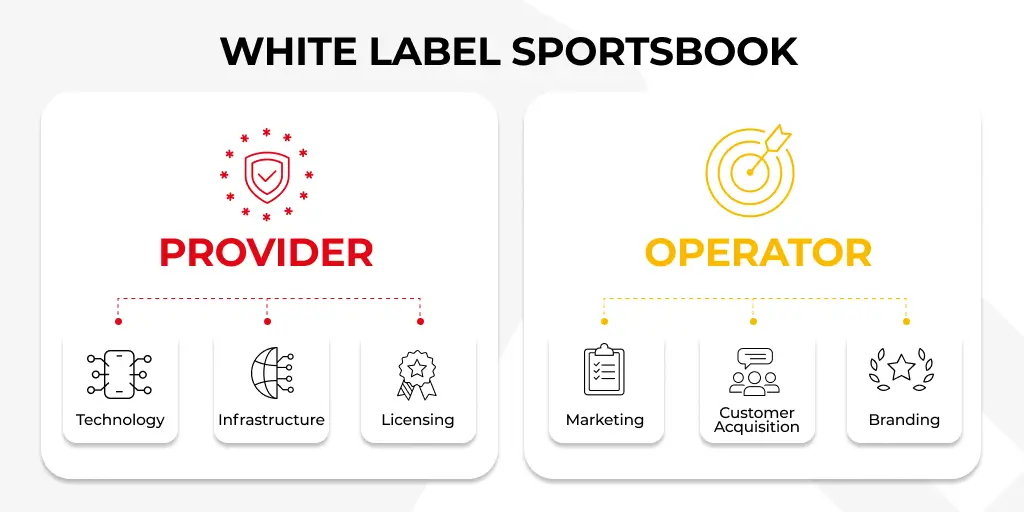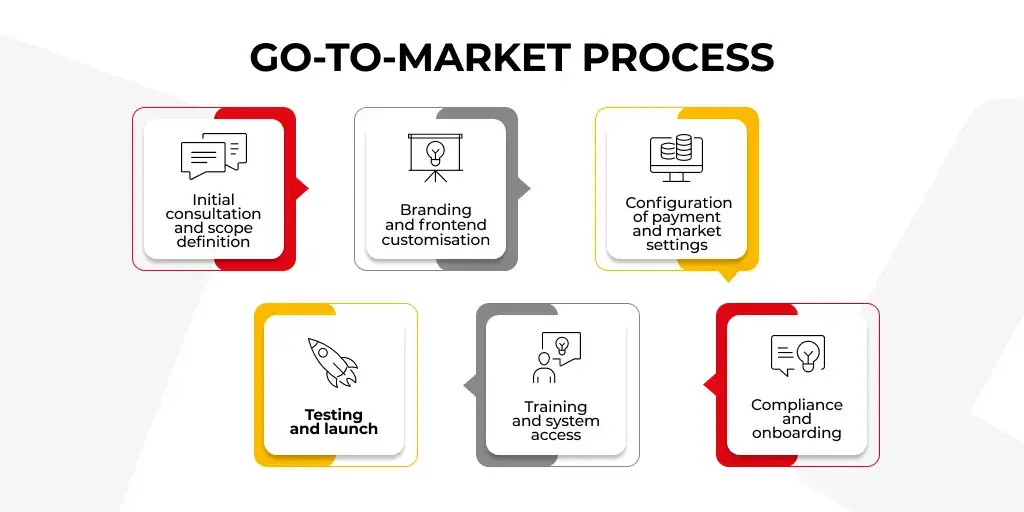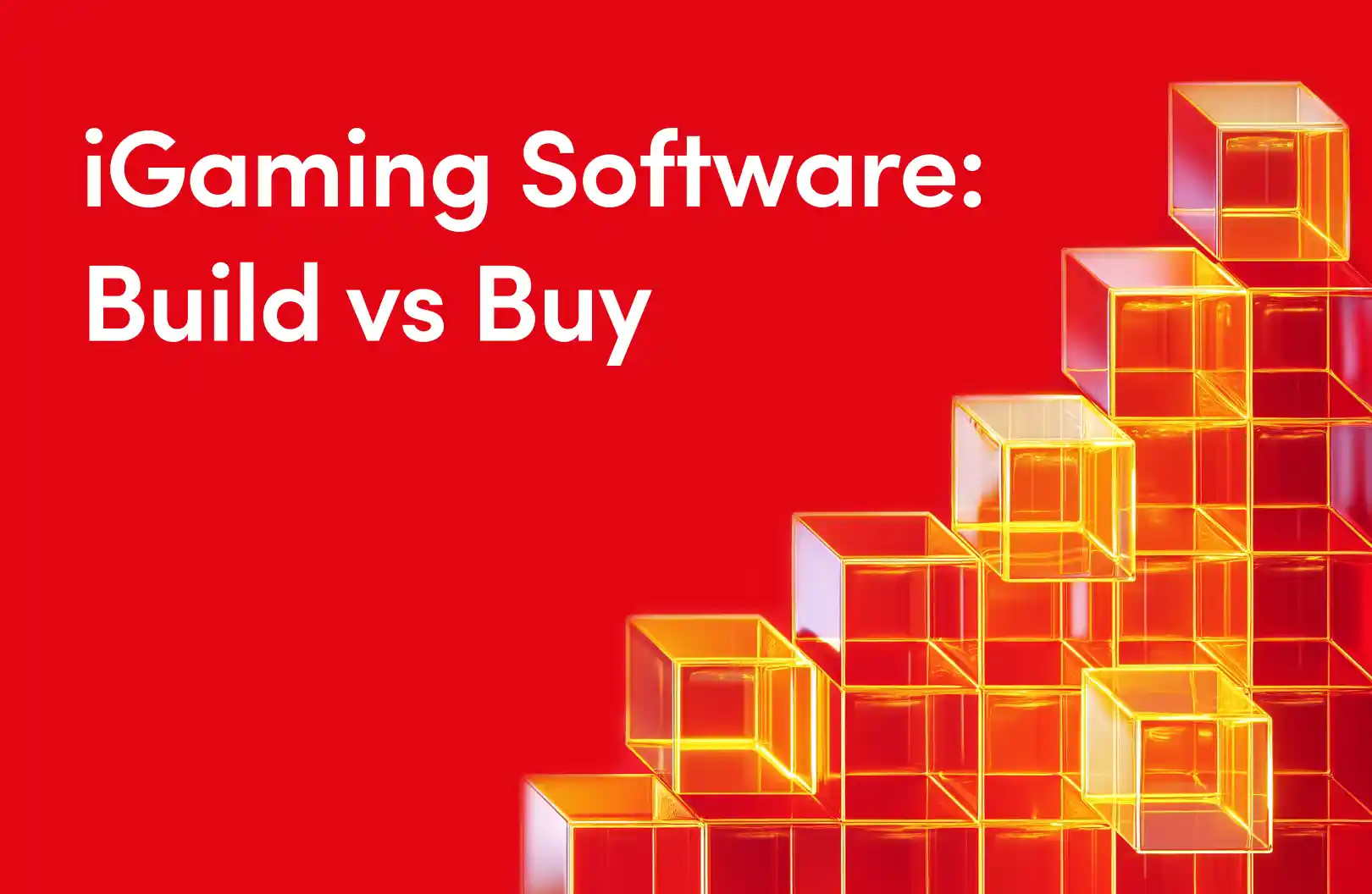Sports betting is rapidly emerging as one of the most popular and commercially promising sectors in the iGaming industry, driven by digital innovation, regulatory expansion, and increasing global demand for online entertainment.
For bookmakers or bookies, this presents both opportunity and pressure: entering or scaling within this niche requires not just speed but a carefully chosen operational model that aligns with jurisdictional realities, long-term brand goals, and technical infrastructure needs.
This article offers a business-focused, in-depth look at the White Label (WL) Sportsbook model, covering:
- How the model works from a legal and operational perspective
- Operational and strategic benefits
- Key limitations
- Comparison to turnkey sportsbook and custom-built solutions
- Current market trends and shifts in regulation
Whether you are exploring market entry or re-assessing your current technical setup, understanding the mechanics and implications of the White Label approach is crucial for making scalable, future-proof decisions in 2025 and beyond.
Key Insights
- White Label Sportsbook is a ready-to-launch business model that enables operators to enter the market under an existing B2C licence.
- Providers handle the backend, operators handle the brand. The provider manages the sportsbook engine, compliance stack, payments, and hosting, while the operator focuses on marketing, player acquisition, and branding.
- This model is most commonly used in markets where local licensing frameworks are not yet fully established or where operation under a provider’s licence is permitted.
- Alternatives like turnkey or in-house solutions provide greater control over the product, with full ownership of infrastructure, UX, and compliance, but they require longer timelines and more internal resources to launch.
- In a maturing industry, future-focused operators are increasingly prioritising platform independence, viewing White Label as a starting point, not the final destination.
What is a White Label Sportsbook and How Does It Work
A White Label Sportsbook is a licensing and infrastructure model that allows an operator to launch a sportsbook brand without developing proprietary technology or independently applying for a gambling licence.
Instead of building a platform or going through a regulatory approval process, the operator partners with a provider who already holds a valid B2C licence and delivers a fully managed sportsbook environment – complete with odds feeds, payment integrations, risk management tools, and compliance infrastructure.
This setup reduces entry barriers significantly and defines the boundaries of control, customisation, and market reach.
At its core, the WL sportsbook model creates a clear division of responsibilities:
- The WL sportsbook provider owns and maintains the core technology stack (sports betting engine, betting odds integrations, payment processing, hosting environment, KYC and AML toolset and more), infrastructure, licensing and compliance, as well as complementary services such as First Line Support.
- Operators (bookmakers) focus on branding, marketing, and player acquisition. They define the visual identity and marketing channels, and, depending on the platform and terms, may have limited influence over frontend UX.

What is Included in the White Label Sports Betting Platform?
B2B software providers working with a White Label approach usually offer a package that includes:
- A preconfigured sportsbook platform. The white label sportsbook software includes all essential features: user interface, back office tools, and risk management systems, all managed by the betting platform provider
- Access to sports data providers (live odds, pre-match feeds for sports, esports, political, and entertaining events)
- Integrated payment solutions and merchant accounts
- Licensing coverage, typically in international or offshore jurisdictions (Malta, Curacao, Anjouan and more)
- Operational support: hosting, updates, uptime monitoring, compliance reporting
However, this package does not give the operator:
- Freedom to expand to locally regulated markets without obtaining a local licence
- Ownership of the underlying platform
- Control over backend logic or data architecture
- Complete flexibility in adding PSPs or odds providers
Everything, including commercial agreements with third parties, is embedded within the provider’s ecosystem, and the operator works within those constraints.
Integration Process and Timeline
In most cases, operators can fully launch a white label sportsbook within four to six weeks, depending on the level of customisation and regulatory checks.
Launching a white label sportsbook follows a structured process designed to minimise complexity for the operator. While exact timelines vary by provider and scope, a typical process includes the following stages:

What Are White Label Clients?
New Market Entrants
Entrepreneurs and startups use white label sportsbook solutions to enter the market quickly without heavy development costs or compliance overhead.
Small to Mid-Sized Operators
These businesses benefit from scalable, cost-effective online betting platforms that allow them to grow and compete against larger, more established brands.
Expanding Operators
Brands in other verticals, such as online casinos or poker, often integrate a white label sportsbook to expand their offerings with minimal disruption.
What Are the Benefits of White Label Sportsbook Software
Operators opt for White Label Sportsbooks for several strategic reasons. Here are some of the most common motivations:
| Benefit | Description |
| White Label licence | Legal entry point: the operator leverages an existing licence, avoiding full regulatory onboarding and approval. |
| Reduced development costs | Lower upfront investment – no need to build from scratch, especially valuable in early-stage launches or tests. |
| Proven, tested platform | Operators benefit from a pre-integrated system used across multiple brands (though they inherit shared limitations too). |
| Faster time-to-market | Go live in weeks, not months – assuming no changes to the baseline logic, licence scope or PSP setup are required. |
| Scalability & flexibility | Easily add sports, markets, or geo-targeted content |
Limitations and Challenges of the WL Solution
In a white label setup, the operator works within the provider's legal, technical, and commercial structure. The scope of operation – platform capabilities, integrations, licensing, and markets – is preconfigured and defined by the licence the provider holds.
As regulation shifts toward local licensing, these predefined structures place more precise limits on how bookmakers can scale. These limitations are not technical issues – they are embedded in how the business is set up from the beginning.
The table below outlines key constraints worth considering when evaluating the White Label model.
| Challenge | Consideration |
| Regulatory pressure | The provider’s licence scope and jurisdictional recognition limit the operator's ability to enter new markets. |
| Reputation & brand dilution | White label setups may be perceived as less transparent or credible in markets with stronger compliance standards. |
| Limited customisation | Technical and commercial flexibility depends on the provider's support and approval under their setup. |
| Dependency on the provider | Business is tied to the provider’s performance, roadmap, and compliance approach. |
White Label Vs Turnkey Vs In-house: Sportsbook Solution Comparison
After exploring the structural limitations of the white label model, it becomes necessary to look at how different operational setups address the exact core requirements: legal responsibility, technical control, and scalability.
In this context, turnkey refers to an arrangement where the operator holds their licence and brand while using a third-party platform under a commercial agreement. In-house refers to full internal ownership of the technology and the licence, with all development and maintenance carried out by the operator’s team.
The table below outlines how these configurations compare across core operational dimensions.
| Feature | White Label | Turnkey | In-House Solution |
| Ownership | Operated under the provider’s international licence | Bookmaker owns the licence and brand; the vendor provides tech under a commercial agreement | Bookmaker owns both the licence and a fully built platform. |
| Time-to-market | Fast – a few weeks | Moderate – depends on tech vendor readiness and licensing process | Slow – full build and licensing from scratch |
| Cost to launch | Low upfront cost | Moderate to high – licence + setup | High – full dev and compliance investment |
| Technical responsibility | Handled by the provider | Shared – core handled by vendor, but bookmaker may manage frontend or specific modules | Handled fully internally |
| Customisation level | Limited branding & feature flexibility | Medium (UX and integrations are negotiable with the vendor) | Complete control over every aspect |
| Regulatory licensing | Covered by the provider’s licence | Operator is responsible for licensing, but the tech vendor may support platform adaptation to regulatory needs | Full legal and technical compliance handled in-house |
| Revenue sharing | Yes | Often yes | No revenue sharing |
| Payments & risk management | Limited to the provider's existing integrations and risk model | A wider range is possible, depending on what vendor can integrate under the operator’s licence | Fully configurable and self-managed. |
| Best for | Startups & brands seeking fast entry with lower-risk | Mid-sized operators wanting flexibility without building from scratch | Large businesses with a unique vision & ample resources |
Each model – white label, turnkey, or in-house – has its trade-offs. The right choice depends on how much control the operator needs, how much responsibility they are prepared to take on, and what kind of growth the team plans.
White label remains effective for fast, low-cost entry into less-regulated or secondary markets. But for operators aiming to build long-term value, differentiate their brand, or enter regulated jurisdictions, turnkey often strikes a better balance. It provides regulatory autonomy without the need to develop full-stack technology in-house.
We previously published an article exploring how these models apply specifically to the online casino business. Read the full comparison here: White Label vs Standalone Casino.
Closing Thoughts
The White Label Sportsbook model offers a compelling starting point for market newcomers, especially in less-regulated jurisdictions where speed and affordability are key. However, looking more broadly at the iGaming landscape, we can see its structural transformation. It is now a mature market, and with more and more countries implementing local regulation, operators face increasing pressure to move from borrowed compliance to having their regulatory destiny.
This shift is not only theoretical. In a recent SOFTSWISS survey of operators and bookmakers, 69.4% said they do not believe in the long-term viability of the White Label model. Among them, 19.4% responded with a categorical ‘no’, stating that direct licensing and local operations are the only sustainable future. Another 50% viewed White Label as a transitional step – a short-term solution for early-stage operations to complete regulatory and technical independence.
The takeaway? White Label platforms remain a valid entry path, but they are increasingly perceived as a stepping stone rather than a long-term solution. In today’s market, operators who aim to build long-term value, develop their brand, and stay ahead of compliance shifts will need to plan for the next phase from day one.

